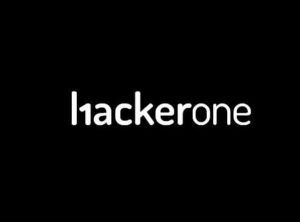CVE Alert: CVE-2025-9925 – projectworlds – Travel Management System
CVE-2025-9925
A vulnerability was found in projectworlds Travel Management System 1.0. This issue affects some unknown processing of the file /detail.php. The manipulation of the argument pid results in sql injection. The attack can be executed remotely. The exploit has been made public and could be used.
AI Summary Analysis
Risk verdict
High risk: remote SQL injection is feasible without authentication, with a publicly known PoC; exploitation could be automated. Treat as a priority for remediation in most environments unless KEV/EPSS indicate otherwise.
Why this matters
The flaw enables attackers to retrieve or modify data via a web endpoint, potentially exposing personal or transactional information and compromising integrity. In travel-management contexts, this can lead to credential exposure, order manipulation, or service disruption, with regulatory and customer trust implications.
Most likely attack path
An attacker can target the exposed detail.php endpoint directly over the network, supplying crafted pid values to inject SQL. No user interaction or privileges are required, and the impact can include data leakage and modification. Lateral movement is likely limited to the application and its database tier unless additional weaknesses exist, but the initial access vector is straightforward and weaponisable.
Who is most exposed
Web deployments of travel or ERP portals with public API or detail pages are at highest risk, especially those lacking input validation, parameterised queries, or network segmentation between app and database layers.
Detection ideas
- Look for SQL error messages or database exceptions surfaced in responses or logs.
- WAF/IDS alerts for SQLi patterns targeting the pid parameter.
- Unusual request volume or varied pid payloads from the same source IPs.
- Anomalous data-access patterns: unexpected row counts or sensitive data exposure in queries.
- Unusual authentication and session activity following suspicious requests.
Mitigation and prioritisation
- Apply vendor patch or upgrade to a fixed version; if unavailable, implement strict input validation and parameterised queries; isolate the database from direct exposure.
- Enforce least-privilege database accounts and disable unnecessary direct access to detail.php; add WAF rules specifically for SQLi payloads.
- Implement compensating controls: robust input canonicalisation, prepared statements, and strict error handling to avoid DB errors leakage.
- Change-management: test in a staging environment, then deploy in a controlled window; monitor post-deployment.
- If KEV is true or EPSS ≥ 0.5, treat as priority 1. Otherwise maintain heightened monitoring and rapid patching readiness.
A considerable amount of time and effort goes into maintaining this website, creating backend automation and creating new features and content for you to make actionable intelligence decisions. Everyone that supports the site helps enable new functionality.
If you like the site, please support us on “Patreon” or “Buy Me A Coffee” using the buttons below
To keep up to date follow us on the below channels.

![[PEAR] - Ransomware Victim: GFF&F - Galine, Frye, Fitting & Frangos, LLP 1 image](https://www.redpacketsecurity.com/wp-content/uploads/2024/09/image-300x300.png)

